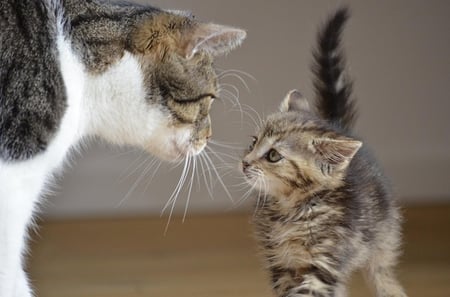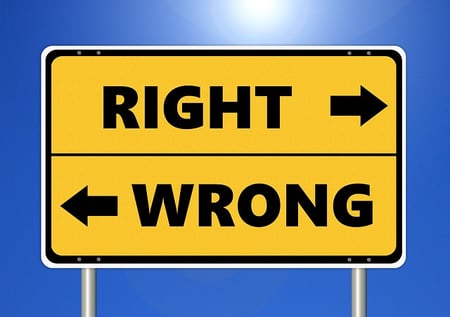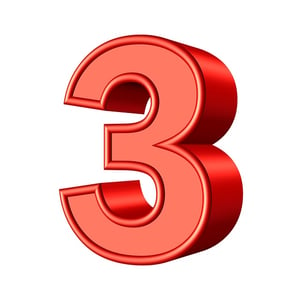In Grammar What Is the Word the
When you start breaking it down, the English language is pretty complicated—especially if you're trying to learn it from scratch! One of the most important English words to understand is the. But what part of speech is the word the, and when should it be used in a sentence? Is the word the a preposition? Is the a pronoun? Or is the word the considered a different part of speech? To help you learn exactly how the word the works in the English language, we're going to do the following in this article: Okay, let's get started learning about the word the! In the English language the word the is classified as an article, which is a word used to define a noun. (More on that a little later.) But an article isn't one of the eight parts of speech. Articles are considered a type of adjective, so "the" is technically an adjective as well. However, "the" can also sometimes function as an adverb in certain instances, too. In short, the word "the" is an article that functions as both an adjective and an adverb, depending on how it's being used. Having said that, the is most commonly used as an article in the English language. So, if you were wondering, "Is the a pronoun, preposition, or conjunction," the answer is no: it's an article, adjective, and an adverb! While we might think of an article as a story that appears in a newspaper or website, in English grammar, articles are words that help specify nouns. So what are "articles" in the English language? Articles are words that identify nouns in order to demonstrate whether the noun is specific or nonspecific. Nouns (a person, place, thing, or idea) can be identified by two different types of articles in the English language: definite articles identify specific nouns, and indefinite articles identify nonspecific nouns. The word the is considered a definite article because it defines the meaning of a noun as one particular thing. It's an article that gives a noun a definite meaning: a definite article. Generally, definite articles are used to identify nouns that the audience already knows about. Here's a few examples of how "the" works as a definite article: We went to the rodeo on Saturday. Did you see the cowboy get trampled by the bull? This (grisly!) sentence has three instances of "the" functioning as a definite article: the rodeo, the cowboy, and the bull. Notice that in each instance, the comes directly before the noun. That's because it's an article's job to identify nouns. In each of these three instances, the refers to a specific (or definite) person, place, or thing. When the speaker says the rodeo, they're talking about one specific rodeo that happened at a certain place and time. The same goes for the cowboy and the bull: these are two specific people/animals that had one kinda terrible thing happen to them! It can be a bit easier to see how definite articles work if you see them in the same sentence as an indefinite article (a or an). This sentence makes the difference a lot more clear: A bat flew into the restaurant and made people panic. Okay. This sentence has two articles in it: a and the. So what's the difference? Well, you use a when you're referring to a general, non-specific person, place, or thing because its an indefinite article. So in this case, using a tells us this isn't a specific bat. It's just a random bat from the wild that decided to go on an adventure. Notice that in the example, the writer uses the to refer to the restaurant. That's because the event happened at a specific time and at a specific place. A bat flew into one particular restaurant to cause havoc, which is why it's referred to as the restaurant in the sentence. The last thing to keep in mind is that the is the only definite article in the English language, and it can be used with both singular and plural nouns. This is probably one reason why people make the mistake of asking, "Is the a pronoun?" Since articles, including the, define the meaning of nouns, it seems like they could also be combined with pronouns. But that's not the case. Just remember: articles only modify nouns. Adjectives are words that help describe nouns. Because "the" can describe whether a noun is a specific object or not, "the" is also considered an adjective. You know now that the is classified as a definite article and that the is used to refer to a specific person, place, or thing. But defining what part of speech articles are is a little bit tricky. There are eight parts of speech in the English language: nouns, pronouns, verbs, adverbs, adjectives, prepositions, conjunctions, and interjections. The thing about these eight parts of speech in English is that they contain smaller categories of types of words and phrases in the English language. Articles are considered a type of determiner, which is a type of adjective. Let's break down how articles fall under the umbrella of "determiners," which fall under the umbrella of adjectives. In English, the category of "determiners" includes all words and phrases in the English language that are combined with a noun to express an aspect of what the noun is referring to. Some examples of determiners are the, a, an, this, that, my, their, many, few, several, each, and any. The is used in front of a noun to express that the noun refers to a specific thing, right? So that's why "the" can be considered a determiner. And here's how determiners—including the article the—can be considered adjectives. Articles and other determiners are sometimes classified as adjectives because they describe the nouns that they precede. Technically, the describes the noun it precedes by communicating specificity and directness. When you say, "the duck," you're describing the noun "duck" as referring to a specific duck. This is different than saying a duck, which could mean any one duck anywhere in the world! When "the" comes directly before a word that's not a noun, then it's operating as an adverb instead of an adjective. Finally, we mentioned that the can also be used as an adverb, which is one of the eight main parts of speech we outlined above. Adverbs modify or describe verbs, adjectives, or other adverbs, but never modify nouns. Sometimes, the can be used to modify adverbs or adjectives that occur in the comparative degree. Adverbs or adjectives that compare the amounts or intensity of a feeling, state of being, or action characterizing two or more things are in the comparative degree. Sometimes the appears before these adverbs or adjectives to help convey the comparison! Here's an example where the functions as an adverb instead of an article/adjective: Lainey believes the most outrageous things. Okay. We know that when the is functioning as an adjective, it comes before a noun in order to clarify whether it's specific or non-specific. In this case, however, the precedes the word most, which isn't a noun—it's an adjective. And since an adverb modifies an adjective, adverb, or verb, that means the functions as an adverb in this sentence. We know that can be a little complicated, so let's dig into another example together: Giovanni's is the best pizza place in Montana. The trick to figuring out whether the article the is functioning as an adjective or an adverb is pretty simple: just look at the word directly after the and figure out its part of speech. If that word is a noun, then the is functioning as an adjective. If that word isn't a noun, then the is functioning like an adverb. Now, reread the second example. The word the comes before the word best. Is best a noun? No, it isn't. Best is an adjective, so we know that the is working like an adverb in this sentence. An important part of answering the question, "What part of speech is the word the?" includes explaining how to use the correctly in a sentence. Articles like the are some of the most common words used in the English language. So you need to know how and when to use it! And since using the as an adverb is less common, we'll provide examples of how the can be used as an adverb as well. In general, it is correct and appropriate to use the in front of a noun of any kind when you want to convey specificity. It's often assumed that you use the to refer to a specific person, place, or thing that the person you're speaking to will already be aware of. Oftentimes, this shared awareness of who, what, or where "the" is referring to is created by things already said in the conversation, or by context clues in a given social situation. Let's look at an example here: Say you're visiting a friend who just had a baby. You're sitting in the kitchen at your friend's house while your friend makes coffee. The baby, who has been peacefully dozing in a bassinet in the living room, begins crying. Your friend turns to you and asks, "Can you hold the baby while I finish doing this?" Now, because of all of the context surrounding the social situation, you know which baby your friend is referring to when they say, the baby. There's no need for further clarification, because in this case, the gives enough direct and specific meaning to the noun baby for you to know what to do! In many cases, using the to define a noun requires less or no awareness of an immediate social situation because people have a shared common knowledge of the noun that the is referring to. Here are two examples: Are you going to watch the eclipse tomorrow? Did you hear what the President said this morning? In the first example, the speaker is referring to a natural phenomenon that most people are aware of—eclipses are cool and rare! When there's going to be an eclipse, everyone knows about it. If you started a conversation with someone by saying, "Are you going to watch the eclipse tomorrow?" it's pretty likely they'd know which eclipse the is referring to. In the second example, if an American speaking to another American mentions what the President said, the other American is likely going to assume that the refers to the President of the United States. Conversely, if two Canadians said this to one another, they would likely assume they're talking about the Canadian prime minister! So in many situations, using the before a noun gives that noun specific meaning in the context of a particular social situation. Now let's look at an example of how "the" can be used as an adverb. Take a look at this sample sentence: The tornado warning made it all the more likely that the game would be canceled. Remember how we explained that the can be combined with adverbs that are making a comparison of levels or amounts of something between two entities? The example above shows how the can be combined with an adverb in such a situation. The is combined with more and likely to form an adverbial phrase. So how do you figure this out? Well, if the words immediately after the are adverbs, then the is functioning as an adverb, too! Here's another example of how the can be used as an adverb: I had the worst day ever. In this case, the is being combined with the adverb worst to compare the speaker's day to the other days. Compared to all the other days ever, this person's was the worst...period. Some other examples of adverbs that you might see the combined with include all the better, the best, the bigger, the shorter, and all the sooner. One thing that can help clarify which adverbs the can be combined with is to check out a list of comparative and superlative adverbs and think about which ones the makes sense with! Now that we've answered the question, "What part of speech is the?", you know that the is classified as an article. To help you gain a better understanding of what articles are and how they function in the English language, here's a handy list of 3 words in the English language that are also categorized as articles. Article Type of Article What It Does Example Sentence The Definite Article Modifies nouns by giving them a specific meaning Please fold the laundry. Do you want to go to the concert? A Indefinite Article Modifies a noun that refers to a general idea; appears before nouns that begin with a consonant. Do you want to go to a concert? An Indefinite Article Modifies a noun that refers to a general idea; appears before nouns that begin with a vowel. Do you want to go to an arcade? Let's get an iguana. If you're looking for more grammar resources, be sure to check out our guides on every grammar rule you need to know to ace the SAT (or the ACT)! Learning more about English grammar can be really helpful when you're studying a foreign language, too. We highly recommend that you study a foreign language in high school—not only is it great for you, it looks great on college applications, too. If you're not sure which language to study, check out this helpful article that will make your decision a lot easier. Speaking of applying for college...one of the most important parts of your application packet is your essay. Check out this expert guide to writing college essays that will help you get into your dream school.

What Part of Speech Is the Word The?

The as an Article

The as an Adjective

The as an Adverb

How to Use The Correctly in Sentences
Using The as an Article
Using The as an Adverb

3 Articles in the English Language

What's Next?

About the Author
Ashley Sufflé Robinson has a Ph.D. in 19th Century English Literature. As a content writer for PrepScholar, Ashley is passionate about giving college-bound students the in-depth information they need to get into the school of their dreams.
In Grammar What Is the Word the
Source: https://blog.prepscholar.com/what-part-of-speech-is-the-word-the#:~:text=The%20word%20the%20is%20considered,definite%20meaning%3A%20a%20definite%20article.